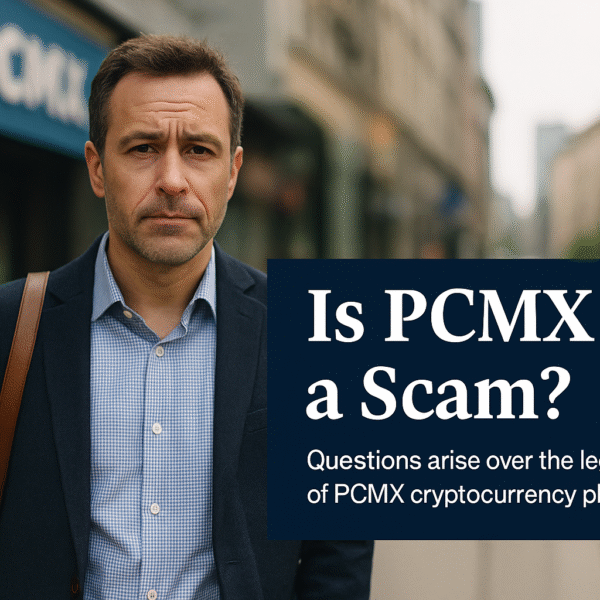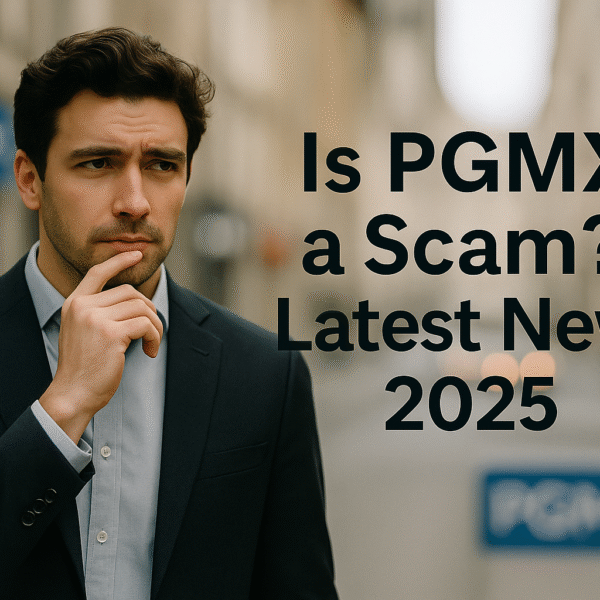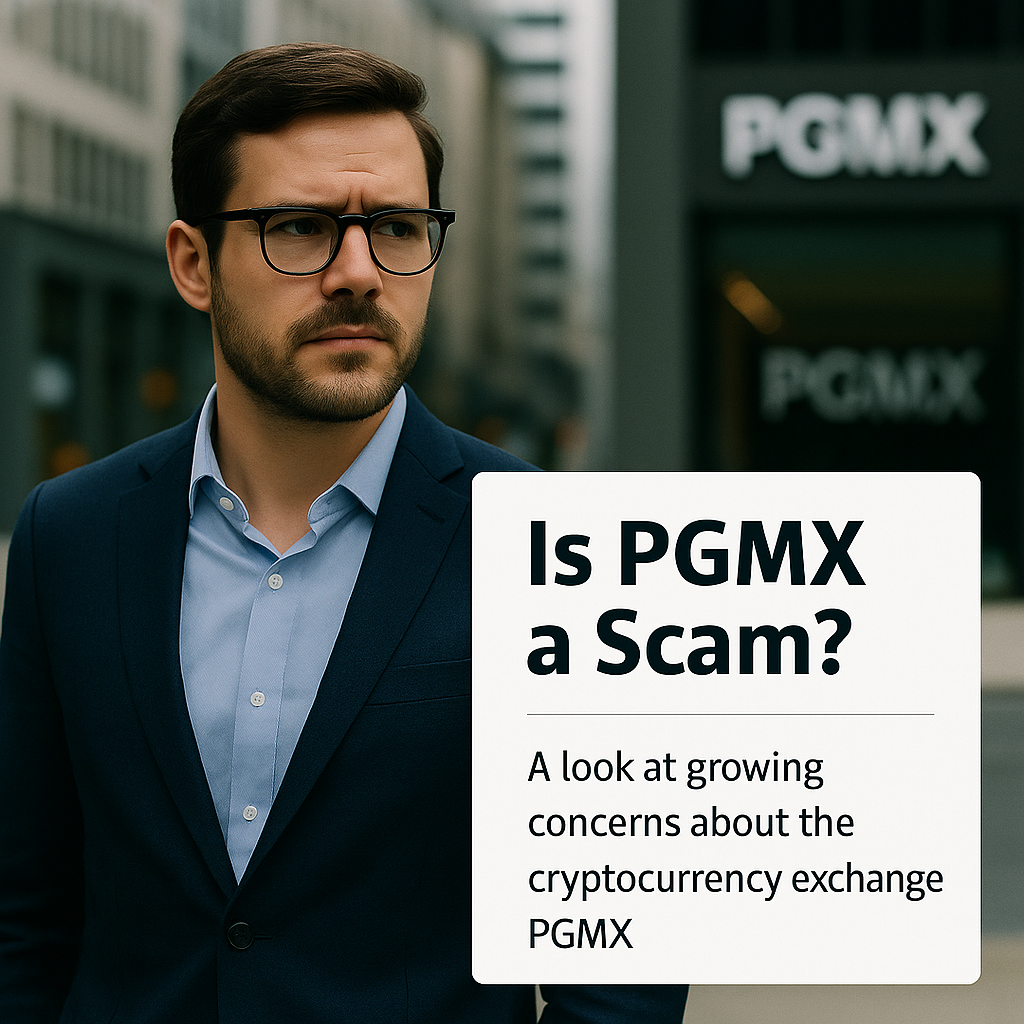


📰 Is PGMX a Scam or a Legitimate Exchange? (Latest Update 2025)
November 2025 — BrokerHiveX News Desk
In recent months, discussions have increasingly focused on the cryptocurrency platform PGMX, as investors frequently search for the answer to one question: “Is PGMX a scam?”
This report takes a closer look at PGMX’s operations, compliance record, and transparency standards based on verifiable public data.
🔍 What Is PGMX?
PGMX is a digital asset exchange that highlights security, compliance, and transparency as its core principles.
The platform reportedly uses cold-wallet storage, multi-layer risk control, and third-party auditing to safeguard user assets.
Unlike some smaller anonymous exchanges, PGMX publishes audit summaries and risk disclosures directly on its transparency portal.
These efforts aim to build user trust and demonstrate accountability in an increasingly competitive crypto market.
🧩 Regulatory and Compliance Framework
To determine whether PGMX is legitimate, compliance remains a crucial benchmark.
The exchange aligns with AML (Anti-Money Laundering) and KYC (Know Your Customer) standards that are recognized internationally.
Moreover, PGMX’s policies closely reflect the frameworks adopted by major financial regulators, including:
FCA (United Kingdom)
FinCEN (United States)
MAS (Singapore)
As a result, PGMX operates with transparency levels similar to licensed financial service providers rather than unregulated offshore platforms.
💡 Proof-of-Reserves and Transparency
Transparency is now one of the strongest indicators of an exchange’s reliability.
PGMX releases Proof-of-Reserves (PoR) statements showing that user funds are fully backed 1:1 on-chain.
In addition, independent auditors verify these records, confirming that balances match the published reserves.
This process mirrors the industry best practices used by reputable platforms such as Kraken and Binance, reinforcing PGMX’s credibility in safeguarding client assets.
⚙️ User Experience and Platform Reliability
Community feedback from major fintech forums suggests that PGMX’s interface is intuitive and its withdrawal system operates consistently.
So far, no confirmed cases of withdrawal fraud or security breaches have been reported.
Nevertheless, users should continue to follow safe trading habits — for instance:
enable two-factor authentication, monitor account activity, and begin with small test transactions before making large deposits.
📊 Editorial Verdict: Is PGMX a Scam?
After reviewing all available compliance filings, audit results, and transparency reports, there is no evidence that PGMX operates as a scam.
On the contrary, the platform exhibits features typically associated with regulated and audit-ready exchanges.
That said, due diligence remains essential.
Investors should always verify regulatory information independently and avoid risking more funds than they can afford to lose.

📰 Is PGMX a Scam or a Legitimate Exchange? (2025 Analysis)
November 2025 | BrokerHiveX News Desk
As the cryptocurrency sector continues to expand, one question has attracted growing attention among global investors: Is PGMX a scam or a legitimate exchange?
This analysis reviews factual data, investor feedback, and industry expert insights to help readers form a clear, evidence-based conclusion.
1|Background and Overview
Launched in early 2025, PGMX markets itself as a security-first crypto exchange that offers institutional-grade liquidity, low-latency execution, and comprehensive risk management tools.
The platform claims to deploy multi-layer encryption, cold-wallet segregation, and real-time monitoring to protect client assets.
However, despite these claims, PGMX does not appear in major regulatory databases such as the FCA Register (UK) or the FinCEN MSB Directory (US).
As a result, it currently falls into the unregulated exchange category, where investor protection is limited and oversight remains minimal.
2|Market Reputation and User Reviews
Investor sentiment toward PGMX is divided.
Some traders report smooth trade execution and timely withdrawals, while others highlight delays in fund transfers and slow customer support responses.
Discussions on Reddit, Trustpilot, and BrokerHiveX community threads suggest a neutral balance — there is no overwhelming evidence of fraud, but also no verified record of institutional credibility.
Such polarization often accompanies newly established exchanges that lack long-term operational history.
3|Expert Observations
Industry analysts stress that visual branding and technology claims cannot replace regulatory compliance.
According to research from the Blockchain Transparency Institute, nearly one-third of all exchanges launched between 2024–2025 have no independent audit verification.
Experts recommend focusing on three verifiable indicators of legitimacy:
Proof-of-Reserves (PoR) or external audit statements.
KYC/AML enforcement consistency.
Disclosure of legal entities and physical office addresses.
For cross-reference, investors can compare PGMX’s disclosures with CryptoCompare Exchange Benchmark Reports or CoinMarketCap’s Transparency Metrics.
4|Investor Guidance
Before trading or depositing with PGMX — or any unverified crypto platform — investors should follow a structured due-diligence process:
✅ Verify domain ownership and corporate registration on WHOIS and official registries.
💵 Test withdrawals with small transactions to validate reliability.
📑 Keep screenshots and correspondence for documentation.
🔍 Monitor external trackers, such as the BrokerHiveX Exposure Database, for warnings or user complaints.
Such proactive steps greatly reduce exposure to counterparty risk and misinformation.
5|Conclusion
Currently, no direct evidence suggests that PGMX is a scam.
Nevertheless, the absence of regulatory licensing, independent audits, and long-term transparency records means investors should act prudently.
In cryptocurrency, trust must be earned through verification, not marketing narratives.
Until PGMX publicly confirms verifiable audit results or regulatory authorization, the question “Is PGMX a scam?” will remain an open topic of debate in 2025.